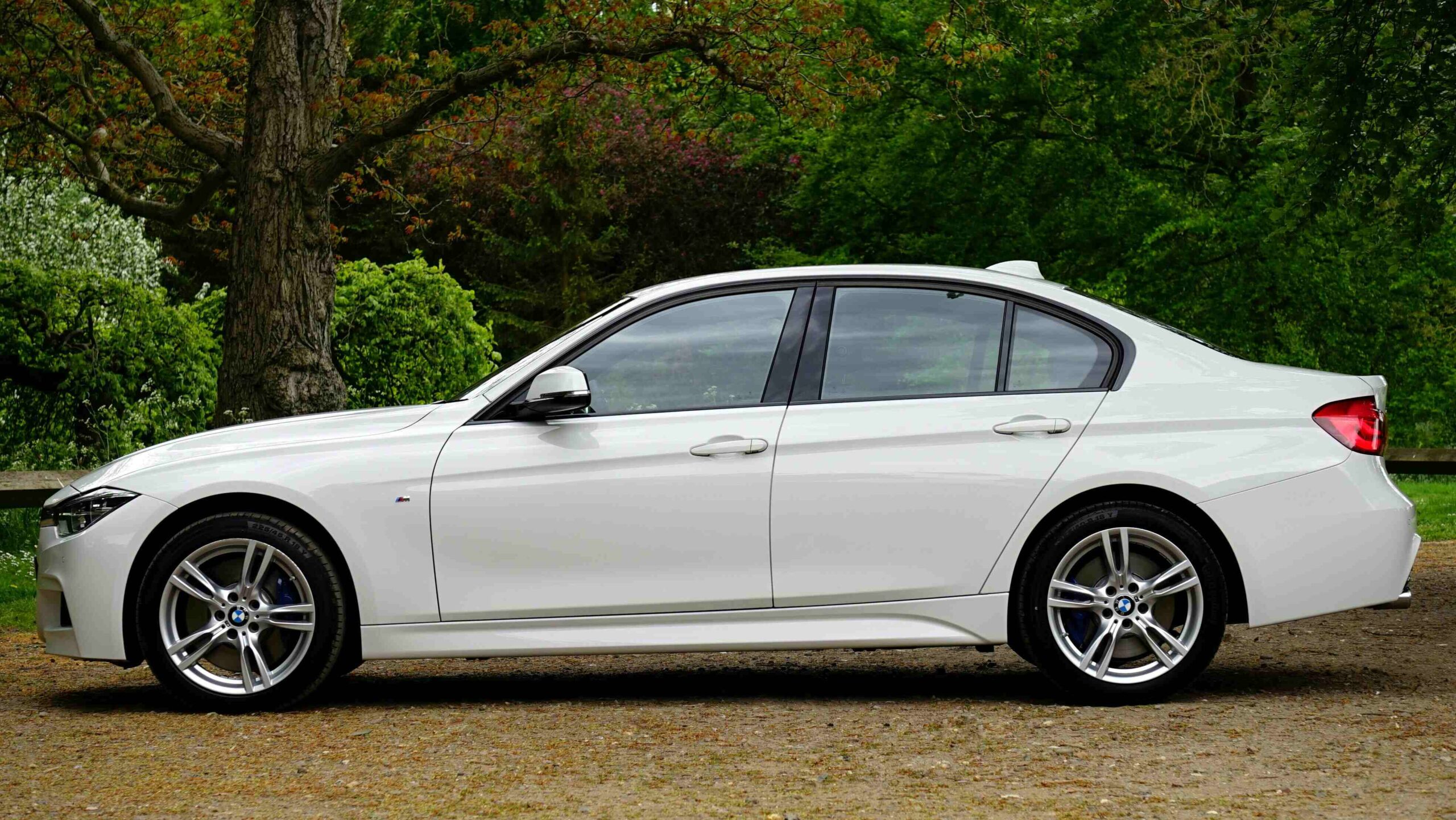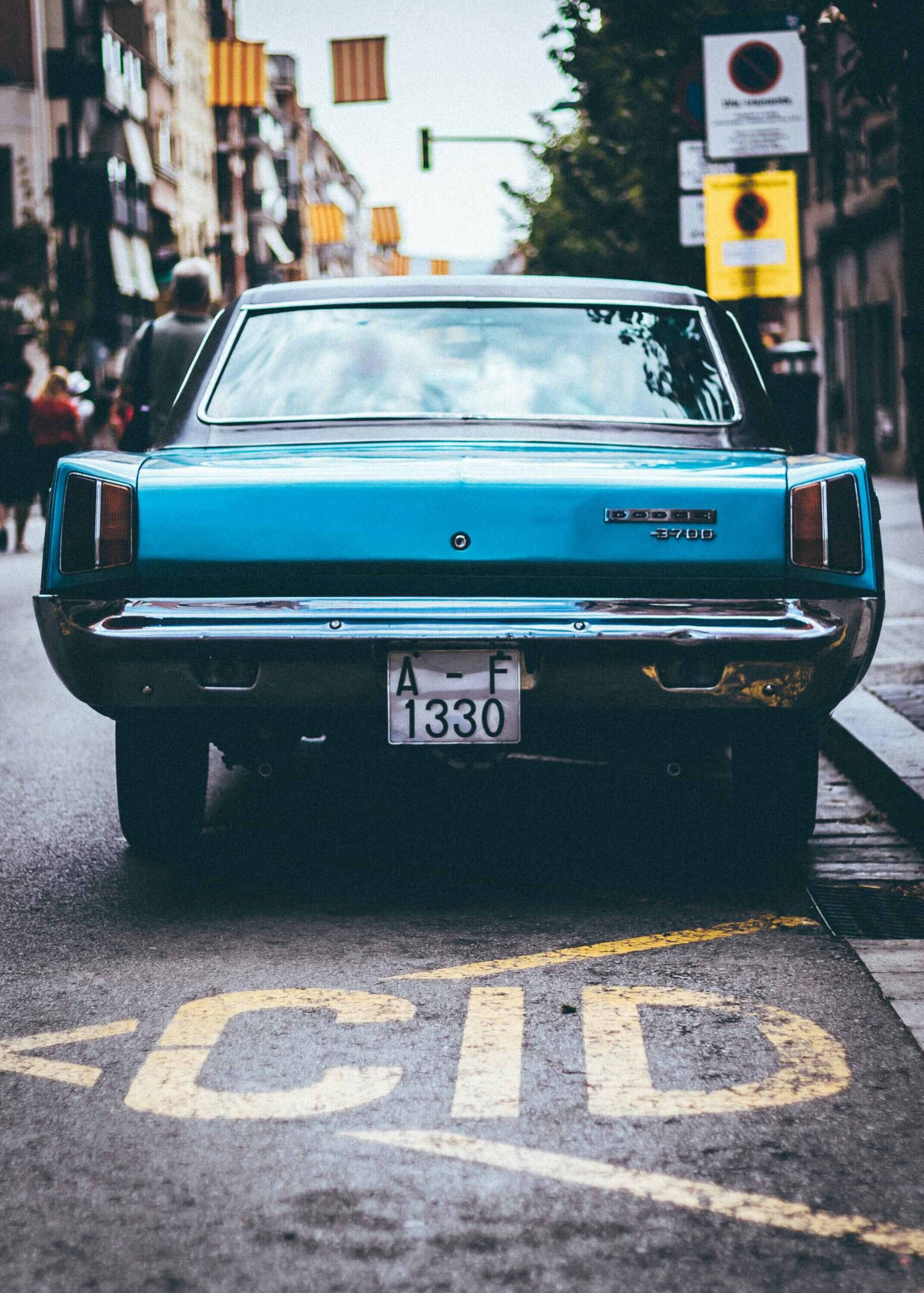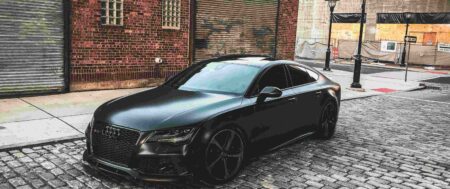How to Buy a Car From a Dealership
When it comes to purchasing a car from used car dealer Denver and how to buy a used car from a dealer, there are several factors to consider, like a car loan from private-party sellers, to ensure a smooth and satisfactory transaction.
Buying from a dealership offers the advantage of a curated inventory, often including certified pre-owned options with warranties and financing opportunities. However, navigating the dealership experience requires careful research and negotiation skills to secure the best deal.
In this blog, we’ll discover essential steps and considerations for buying a used car from Auto Finance Denver, from researching available inventory to negotiating prices, making monthly payments, and understanding warranty options, which ultimately helps you make an informed and confident purchase decision.
Used Car Dealership Serving Denver, Colorado
One reputable used car dealer serving Denver, Colorado, is “Mile High Auto Sales.” Located in Denver, they offer a wide selection of quality used vehicles at competitive prices. With a focus on customer satisfaction regarding car purchases, Auto Finance Denver provides transparent pricing, vehicle history reports, and financing options to meet diverse needs.
Their knowledgeable staff assists customers in finding the right car and car insurance options, ensuring a hassle-free buying experience. No matter, if you’re looking for a sedan, SUV, truck, or van, Auto Finance Denver, is dedicated to helping you find a reliable vehicle that fits your budget and lifestyle.

What are the Used Car Dealerships Serving Denver?
Denver and its surrounding areas have several reputable car dealerships that offer a diverse selection of car purchases. Here are some of the top options:
Auto Finance Denver offers a wide range of used Ford vehicles, along with other makes and models. They provide competitive pricing, financing options, and certified pre-owned vehicles for added peace of mind.
Moreover, it specializes in high-quality used cars, offering a transparent buying process and a wide selection of makes and models. They focus on providing a hassle-free experience with fair pricing, car insurance, and no haggling.
It offers a variety of used Chevrolet vehicles, along with other brands. They prioritize customer satisfaction and provide financing options, certified pre-owned vehicles with monthly payment options, and a knowledgeable sales team.
This dealership offers a diverse inventory of used Chrysler, Dodge, Jeep, and Ram vehicles. They focus on providing excellent customer service, financing options, and certified pre-owned vehicles.
The company has a large selection of used cars from various makes and models. They provide a straightforward buying process with low pricing, financing options, and a 125+ point inspection for all vehicles.
So if you’re looking for a specific make or model, Auto Finance Denver provides a variety of options, financing solutions, and customer-centric services to help you find the right vehicle for your needs. Therefore, for a used car purchase, it would be the best option to go with compared to hiring a private party.

Call Now For Pre-Qualification Info
Which are the Certified Preowned Vehicles Available for Sale in Denver?
Denver offers a variety of pre-owned and reliable used cars for sale with auto insurance that offers different preferences and needs. Here are some top certified preowned vehicles available in Denver with their specifications:
1. Ford F-150
The Ford F-150 is a versatile full-size pickup truck known for its powerful engines, spacious interior, and towing capabilities. Preowned models in Denver may include various engine options, such as the V6 EcoBoost or V8, along with features like four-wheel drive, extended cab or crew cab configurations, and towing packages.
2. Toyota Camry
The Toyota Camry is a reliable midsize sedan known for its fuel efficiency, comfortable ride, and long-term durability. Preowned Camry models in Denver may feature a four-cylinder or V6 engine, front-wheel drive, a steering wheel, a spacious interior with ample legroom, advanced safety features like Toyota Safety Sense, and infotainment options like Apple CarPlay and Android Auto compatibility.
3. Honda CR-V
The Honda CR-V is a popular compact SUV known for its practicality, reliability, and comfortable ride. Preowned CR-V models in Denver may come with a fuel-efficient four-cylinder engine, available all-wheel drive, a spacious cargo area, a versatile interior with folding rear seats, advanced safety features like Honda Sensing and Test Drive, and modern infotainment systems with touchscreen displays.
4. Chevrolet Silverado 1500
The Chevrolet Silverado 1500 is a rugged full-size pickup truck known for its strong towing capabilities, spacious cabin, and multiple engine options. Preowned Silverado models in Denver may feature V6 or V8 engine choices, available four-wheel drive, regular cab or crew cab configurations, towing packages with integrated trailer brake controllers, and advanced technology features like smartphone integration and built-in Wi-Fi hotspots.
5. Subaru Outback
One of the best vehicles in reliable used cars, the Subaru Outback is a versatile crossover SUV known for its all-weather capability, spacious interior, and off-road prowess. Preowned Outback models in Denver may come with a fuel-efficient four-cylinder engine or a more powerful six-cylinder option, standard all-wheel drive, generous ground clearance for light off-roading, comfortable seating for five passengers, advanced safety features like Subaru Eyesight, and available amenities like a panoramic sunroof and leather upholstery.
These are just a few examples of the preowned motor vehicles available for sale in Denver, each offering unique specifications and features to suit different preferences and lifestyles. No matter if you’re looking for a pickup truck, sedan, SUV, or crossover, there are plenty of options to opt for in the Denver area.
Call Now For Pre-Qualification Info
Trusted Car Dealerships: Ensuring Reliability and Transparency
You can buy a used car from a trustworthy car dealership or used car superstore, which is essential when purchasing a vehicle with the best fuel economy to ensure a positive buying experience and a reliable vehicle. Here are some key factors to consider when determining which car dealerships you can trust:
Reputation and Reviews
So you should look for car dealerships with a solid reputation in the community and positive customer reviews. Online review platforms like Google, Yelp, and Dealer Rating can provide valuable insights into other customers’ experiences with the dealership.
Accreditation and Certifications
You should check if the dealership is accredited by organizations like the Auto Titan Group or certified by manufacturers for selling certified pre-owned vehicles. These accreditations indicate that the dealership meets certain standards of professionalism and customer service.
Transparency and Disclosure
A trustworthy dealership for a car purchase should be transparent about the car’s history, condition, gap insurance, and average price. They should provide vehicle history reports, make monthly payments, disclose any known issues or accidents, and offer fair pricing without hidden fees or surprises.
Customer Service and Support
Consider the car dealers’ level of customer service and support throughout the buying process and beyond. A reputable dealership will prioritize customer satisfaction, provide assistance with financing and paperwork, and offer post-purchase support like maintenance services and warranty coverage.
Warranty and Guarantee
As car buyers, you should look for dealerships that offer warranty options or guarantees on their vehicles. This demonstrates confidence
in the quality and reliability of their inventory and provides additional peace of mind for car buyers.
The best example of a trusted used car dealer for a specific vehicle known for its reliability, and customer satisfaction is Auto Finance Denver.
Additionally, as compared to used car dealers, local dealerships for a new car auto loan with a pay-cash option, a long-standing presence in the community, and a strong reputation for customer service can also be trustworthy options.
Call Now For Pre-Qualification Info
How Can You Find More Ways to Save on Your Next Vehicle
As you know, getting a new car loan has never been easy from private-party sellers, so you should opt for alternative ways to save more money. When it comes to purchasing any specific car model, finding ways to save money can make a significant difference in your overall budget.
Here are several strategies to consider when finding more ways to save on your vehicle:
1. Research and Comparison Shopping:
You should start by researching different makes and models to identify vehicles introduced by private party sellers that meet your needs and budget for car buying. Compare prices and car payment scenarios from multiple dealerships, online marketplaces, and private sellers to find the best deals. Websites like Kelley Blue Book, Edmunds, and used car superstores can provide valuable pricing information and help you negotiate a fair price.
2. Consider Preowned Vehicles:
Opting for a CPO car that is new to your ride instead of a brand-new one can lead to substantial savings. Preowned cars typically have lower purchase prices, and they may also have lower insurance costs and depreciation rates compared to new cars and used car superstores.
Additionally, certified pre-owned vehicles often come with extended warranties and undergo thorough inspections, providing added peace of mind.
3. Explore Financing Options:
Shop around for financing options to secure the most favorable terms and interest rates. Consider getting pre-approved for car loan from a bank, credit union, or online lender before visiting dealerships.
This can help you negotiate a better financing deal and prevent you from being pressured into accepting dealership financing with less favorable terms.
4. Negotiate the price:
Don’t hesitate to negotiate the price of the vehicle with the seller, whether it’s a dealership or a private seller. Research the fair market value of the car and use this information to negotiate a lower price. Be prepared to walk away if the seller isn’t willing to meet your price expectations.
5. Look for Incentives and Rebates:
Keep an eye out for manufacturer incentives, rebates, and special offers that can help you save money on your purchase of a pre-owned vehicle. These incentives may include cash rebates, low-interest financing deals, or lease specials.
Check the manufacturer’s website or contact dealerships directly to inquire about any available incentives.
6. Consider Timing:
Timing your purchase strategically can also lead to savings. Dealerships may offer better deals at the end of the month or during holiday sales events when they’re trying to meet sales quotas. Additionally, purchasing a vehicle during the previous model year’s clearance sale can result in significant discounts.
7. Factor in Ownership Costs:
When evaluating your budget for auto loans, don’t forget to consider other ownership costs such as insurance premiums, maintenance expenses, and fuel costs.
Choosing a fuel-efficient vehicle with lower insurance rates and reliable, long-term performance and service records can help you save money over time.
If you implement these strategies and take a proactive approach to your car buying process, such as getting a loan from a credit union or asking for a price, you can find more ways to save money and secure a great deal on your next vehicle. Remember to research thoroughly, negotiate effectively, and explore all available options to maximize your savings on private party cars.
How to Buy a Used Car from a Dealer
Buying a used car or a new car from a car lot, dealership, or used car superstore can be a straightforward and reliable way to find a quality vehicle. However, it’s essential to approach the process with careful consideration and preparation to ensure a smooth transaction. Here’s a step-by-step guide on how to buy a used car from a dealer:
Research
Before visiting any dealerships for the right car or a pre-owned car, conduct thorough research to determine the type of car you want, including make, model, year, asking price, and desired features. Consider your budget and prioritize factors such as fuel efficiency, safety ratings, and maintenance costs. Research reliable dealerships in your area, read customer reviews, and check their reputation with organizations like the Better Business Bureau.
Financing
If you plan to finance your purchase of a new car, explore financing options before visiting the dealership. Check your credit score, and repair costs, and shop around for pre-approval from banks, credit unions, or online lenders to secure the best interest rates and loan terms. This pre-approval will give you leverage when negotiating with the dealership’s financing department.
Visit the Dealership
Once you’ve identified a few potential dealerships, visit them in person to inspect their inventory. Take note of the available used cars, their condition, pricing, and any special offers or promotions. Don’t hesitate to ask questions about the vehicle’s history, maintenance records, and warranty options.
Test Drive
Before making any decisions for any vehicle purchase, schedule test drives for the cars you’re interested in. Pay attention to the car’s overall condition, driving dynamics, comfort, and features.
Test different driving scenarios, including city streets, highways, and parking maneuvers, to ensure the car meets your expectations.
Vehicle Inspection
If you’re satisfied with the test drive, for a CPO car request a thorough inspection of the vehicle by a qualified mechanic. Many dealerships
offer pre-purchase inspections for used cars, which can identify any hidden issues or concerns like air conditioning or credit reports.
Review the inspection report carefully and use it as a bargaining tool during negotiations for the best price.
Negotiation
Once you’ve settled on a specific car, it’s time to negotiate the price and interest rate. Research the fair market value of the car based on its make, model, year, mileage, and condition. Be prepared to negotiate with the salesperson, and don’t be afraid to walk away if you’re not getting the deal you want.
Finalize the Deal
After reaching an agreement on the price for multiple vehicles, review and sign all necessary paperwork, including the sales contract, financing agreements (if applicable), and any additional documents related to warranties or add-ons.
Ensure that all terms and conditions from the insurance company are clearly outlined and that you understand them before signing.
Take Delivery
Once the paperwork is complete and the payment is processed for car lots, take delivery of your new car. Before driving off the lot, inspect the car one final time to confirm that everything is in order. Make sure you receive all necessary documents, including the title, registration, and copies of the sales contract.
By following these steps and taking a methodical approach from the auto lenders, you can confidently navigate the process of buying a used car from a dealership with a higher credit score and drive away with a reliable vehicle that meets your needs and budget.
Call Now For Pre-Qualification Info
What Documents to Check When Buying a Used car
Like any other deal, the car buying process is very overwhelming in terms of higher credit scores to buy new cars, so there are some essential documents that you may consider completing for specific car models.
Documents Required to Buy Used Cars
To buy a used car from a private-party seller, whether from a private seller or a dealership, several documents are required to complete the transaction and ensure legal compliance. These documents vary depending on your location and specific circumstances, but generally include:
1. Identification
You’ll need to provide a valid form of identification, such as a driver’s license or passport, to verify your identity.
2. Proof of Insurance
Before driving the car off the lot or from a private seller’s location, you’ll need to have insurance coverage. Bring proof of insurance to the dealership or obtain it before finalizing the transaction.
3. Vehicle Registration and Title
If you’re purchasing from a private seller, they should provide you with the vehicle’s title (also known as the pink slip) and registration documents. If you’re buying from a dealership, they will handle the title transfer process for you.
4. Bill of Sale
A bill of sale is a legal document that records the transfer of ownership and car history from the seller to the buyer. It includes details such as the purchase price, vehicle identification number (VIN), date of sale, and the names and signatures of both parties.
5. Vehicle History Report
While not always required, it’s a good idea to obtain a vehicle history report from an independent mechanic, especially when purchasing from a private seller.
This report provides valuable information about the car’s past, including any accidents, title issues, or the previous car’s vehicle identification number.
6. Financing Documents (if applicable)
If you’re financing the purchase through a bank or lender, you’ll need to bring documentation related to the loan, such as a loan approval letter, loan agreement, or financing application.
7. Inspection Report (if applicable)
If you’ve had the car inspected by a mechanic before purchase, keep a copy of the inspection report for your records. This document can help negotiate the price or address any issues with the seller.
8. Warranty Documents (if applicable)
If the car comes with a warranty, either from the manufacturer or an extended warranty provider, make sure to obtain and review the warranty documents and the car’s history before finalizing the purchase.
Therefore, for the best deals, make sure that you have all the necessary documents from the private par seller in order before buying a used car.
This will help facilitate a smooth and legally compliant transaction and car payment process, providing you with peace of mind as you drive away in your new vehicle.
Call Now For Pre-Qualification Info
Your Rights When Buying a Used Car From a Dealer
As a buyer purchasing a used car from a dealer, even with the monthly payment system, you have several rights and protections under consumer laws. These rights can help ensure a fair and satisfactory transaction. Here are some key rights you should be aware of:
1. Right to Accurate Information:
Dealers are required to provide accurate information about the car’s condition, history, and any known defects. They cannot withhold or misrepresent information that could affect your decision to purchase.
2. Right to a Test Drive:
You have the right to test drive the car before making a purchase and having it inspected by an expert or mechanic. This allows you to evaluate its performance, comfort, and overall condition firsthand.
3. Right to Request Vehicle History:
You can request a vehicle history report, which provides information about the car’s past ownership, accidents, repairs, and other important details. Dealers must disclose this information if they have it available.
4. Right to Negotiate:
You have the right to negotiate the price of the car with the dealer for a used car. Be prepared to research the market value of similar vehicles and use this information to negotiate a fair price.
5. Right to Warranty Information:
Dealers must provide information about any warranties offered with the car, including the duration and coverage details. This helps you understand what protections are available after the purchase.
6. Right to Cancel Contract:
In some cases of used car options, you may have the right to cancel the sales agreement within a certain timeframe if you change your mind about the purchase. This is known as a “cooling-off period,” and the duration varies by state.
7. Right to Fair Financing Terms:
If you’re financing the purchase through the dealership, you have the right to fair and transparent financing terms, like interest rates. For car shopping, dealers must comply with lending laws and regulations to ensure that financing terms are disclosed accurately.
8. Right to Inspect the Vehicle:
Before finalizing the purchase, you have the right to get the car inspected thoroughly in every aspect. This includes checking for any mechanical issues, damage, or other concerns that may affect its value or safety.
If you understand and assert your rights as a buyer for car shopping, you can navigate the process of purchasing a used car from a dealer with confidence, knowing that you are protected under consumer laws.
If you encounter any issues or disputes during the transaction, consider seeking assistance from consumer protection agencies or legal professionals and opting to pay cash on sight.
Call Now For Pre-Qualification Info
FAQs
Can I finance a used car purchase?
Yes, many dealerships and financial institutions offer financing options for used car purchases. You can apply for a loan to cover the cost of the car, and terms will vary based on factors like credit history, down payment, and the vehicle’s age and condition.
Do I need to get a vehicle inspection before buying a used car?
It’s highly recommended to get a pre-purchase inspection by a trusted mechanic before buying a used car. This inspection can uncover any underlying issues with the vehicle that may not be apparent during a test drive, helping you make an informed decision and potentially saving you from costly repairs down the line.
Can I negotiate the price of a used car?
Yes, for car payments, negotiation is common when asking for the price when paying cash or in monthly installments and the interest rate when buying a used car. Dealerships and private sellers often expect some level of negotiation, so it’s worth researching the market value of similar vehicles and negotiating based on factors in auto loans like the car’s condition, mileage, and any necessary repairs.
Conclusion
There are many considerations when planning how to buy a used car from a dealer, within the car lot, or from a private-party seller, as it requires thorough research, careful inspection, and effective negotiation. If you understand your rights as a buyer, like conducting a test drive, obtaining a vehicle history report, and inspecting the car’s condition, you can make an informed decision.
So you should negotiate the price and review all documents before finalizing the purchase, which are crucial steps to ensuring a fair deal for a used vehicle. With attention to detail and patience throughout the process, you can confidently navigate the purchase of a used car from a dealer and drive away with a reliable vehicle that meets your needs and budget.











